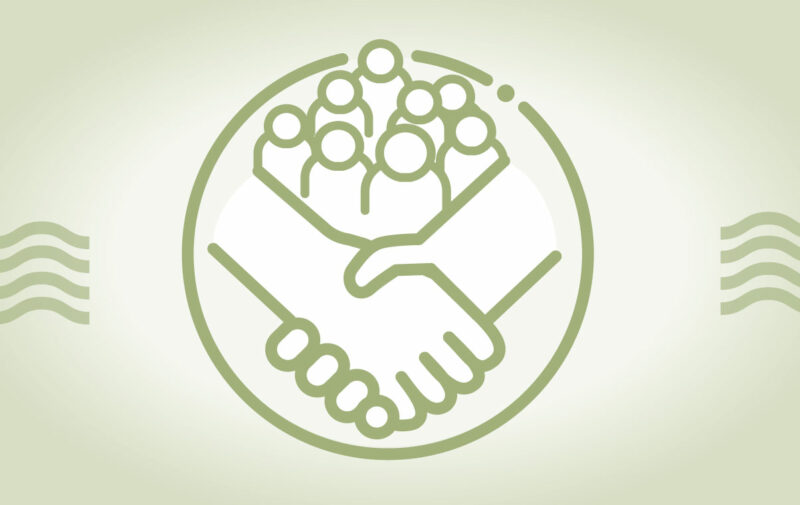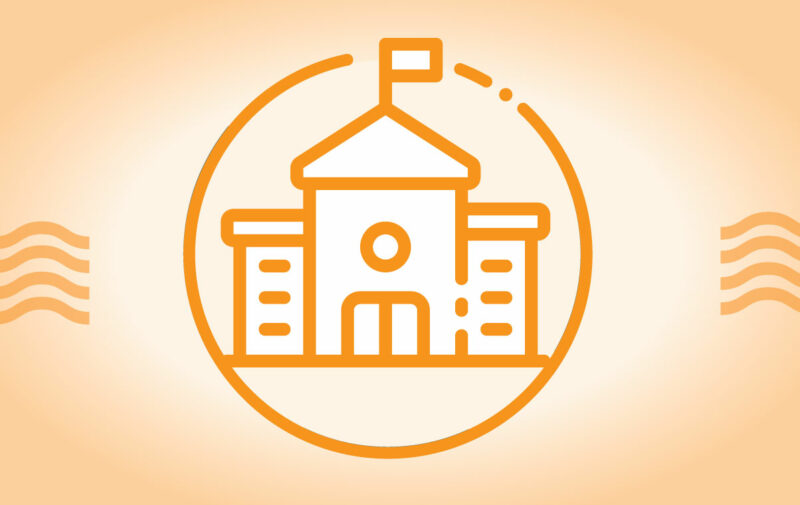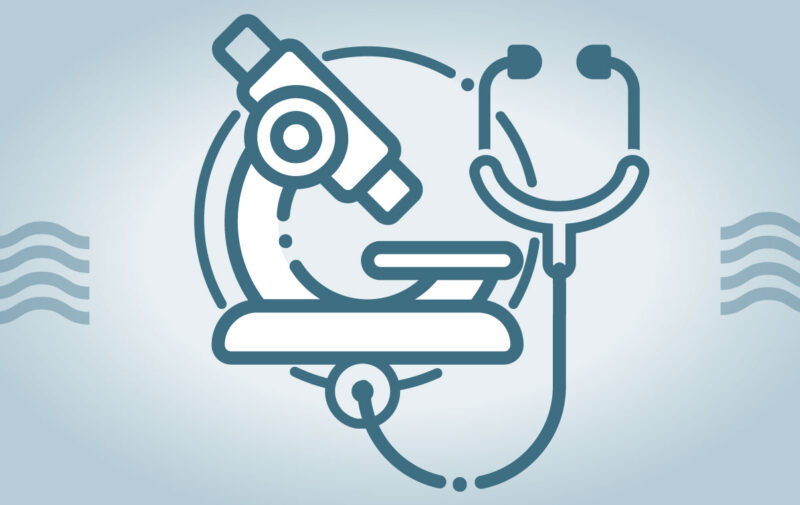
COVID-19 Response Grant
Wood County Community Response to COVID-19
Outcome Report
Awarded in
2020
The ongoing COVID-19 pandemic created conditions that increased well-established risk factors for child maltreatment while also limiting access to protective social supports. The Marshfield Child Advocacy Center (MCAC) partnered with the Wood County Department of Human Services (WCDHS), Wood County Resilience Coalition, and several Wood County school districts to support families through the pandemic as a means to reduce risk for child maltreatment.

COVID-19 Response Grant
UW Student Health Care Worker Tuition Program (UW-SHCWTP)
Outcome Report
Awarded in
2022
As Wisconsin experienced multiple waves of COVID-19 infections, hospitals and health care facilities faced staffing challenges. Baccalaureate, degree-completion, and graduate nursing students at the University of Wisconsin–Madison and other UW institutions were able to fill critical vacancies across the state at this time of heightened need through the UW Student Health Care Worker Tuition Program (UW-SHCWTP). The initiative aimed to provide a $500 tuition credit for as many as 2,000 nursing and health sciences students within the UW System to help fill local health care staffing needs over the spring 2022 semester.
The initiative was led by the UW–Madison School of Nursing and supported with a $500,000 grant from the Wisconsin Partnership Program to expand an initial effort supported by the Wisconsin Department of Health Services. The project was successful as a total of 1,689 UW System students received tuition support from this program, with over one-third being UW–Madison students and two-thirds representing 12 schools within the UW System including six nursing schools. Additionally, work was completed across 79 unique zip code areas and included rural, urban, and suburban locations in Wisconsin.

COVID-19 Response Grant
WeRISE: Black Birth Workers Response to COVID-19 Project
Outcome Report
Awarded in
2020
Through the WeRISE Black Birth Workers Response to COVID-19 pilot program, the African American Breastfeeding Network (AABN) partnered with Black doulas and Black birth workers to prevent the spread of COVID-19 among Black/African American families across Southeastern Wisconsin, specifically in Milwaukee, Racine, and Kenosha counties. The grant team sought to provide culturally-appropriate services, information, and resources to 100 pregnant African American birthing persons, reduce the incidence of the COVID-19 infection and spread, and reduce risk of maternal and infant complications.
The grant team successfully served 90 women through the WeRISE pilot program and a majority of the mothers expressed high levels of satisfaction with the services provided, doula communication and skills, COVID-19 information and resources, and the program overall. The team identified, interviewed, and recruited 25 Black women who were trained and certified as doulas and were subsequently matched with the mothers enrolled in the program. Additionally, they created and disseminated a two tier COVID-19 Emergency Tool Kit, as well as Postpartum Healing Kits to support mothers’ needs after birth.

COVID-19 Response Grant
Creating Infrastructure to Study the Immune Response to SARS-CoV-2 in Wisconsin
Outcome Report
Awarded in
2020
This project sought to address problems in COVID-19 preparedness to reduce morbidity and mortality and to achieve the highest level of health for all people of Wisconsin. To do this, the research team created a biorepository to support research at the UW and beyond. They also evaluated the persistence of anti-SARS-CoV-2 antibodies.
The resulting biorepository contains extensive clinical data, serum, plasma, and immune cells collected over the course of a year from 120 subjects who recovered from COVID-19. In addition to supporting the research of multiple scientists at UW and nationally, the biorepository allowed the research team to demonstrate the presence of antibodies against the SARS-CoV-2 membrane protein in the human body for at least one year, and showed that antibodies that bind to the receptor binding domain (RBD) of the SARS-CoV-2 spike protein are a long-lasting, sensitive, and specific marker of both past infection and vaccination. Thus, the researchers determined that a combination of these antibodies can accurately differentiate between distant COVID-19 infection, vaccination, and naïve states to advance public health, individual healthcare, and research goals.

COVID-19 Response Grant
Role of Naso-oropharyngeal Antiseptic Decolonization to Reduce COVID-19 Viral Shedding and Disease Transmission: SHIELD Study
Outcome Report
Awarded in
2020
Healthcare workers caring for COVID-19 patients are at high risk of contracting and spreading the virus. Early in the pandemic, there was an urgent need for effective, safe, and easily implementable strategies to reduce the spread of COVID-19. Researchers aimed to evaluate the feasibility of and effects of decontamination interventions including nasal solution and an oral mouthwash on virologic shedding, transmission, and infection outcomes in healthcare workers involved in COVID-19 patient care. Researchers were successful in completing this project. Participants reported high acceptability of the interventions and 73 percent of respondents were willing to use the interventions moving forward.

COVID-19 Response Grant
Novel COVID-19 monoclonal antibodies for patient diagnostics, therapy and research
Outcome Report
Awarded in
2020
This project aimed to address the unmet needs of current COVID-19 testing by developing novel molecules called monoclonal antibodies that act to restore, enhance, or mimic the immune system’s attack on the COVID-19 virus. The researchers successfully developed monoclonal antibodies that block viral entry into cells. In the future, these molecules can be incorporated into tests and contribute to therapies for COVID-19.

COVID-19 Response Grant
To Test the Protective Efficacy of Whole-Inactivated SARS-CoV-2 Vaccine in Syrian Hamsters
Outcome Report
Awarded in
2020
When this project began, the COVID-19 pandemic required the development of vaccines to mitigate the impact of this virus. Whole inactivated vaccines are easy to produce and have been shown to be effective for several viruses including corona, influenza, and Ebola. Thus, the research team proposed to generate a whole inactivated SARS-CoV-2 vaccine virus and test its ability to protect against COVID-19 in an animal model of Syrian hamsters.
The research team determined that the inactivated vaccine virus elicited a protective immune response in a hamster model of SARS-CoV-2 infection. The vaccine alone without Quil-A® gave protection two weeks after a second vaccination, even against emerging variants. Although the durability of this inactivated vaccine is currently unknown, the addition of an immune response enhancing substance like Quil-A may extend its protective efficacy.

COVID-19 Response Grant
Men’s Emergency Shelter-Virtual Health Assessments
Outcome Report
Awarded in
2020
The COVID-19 pandemic brought unprecedented challenges across communities, and transmission among underserved communities, such as people experiencing homelessness added complexity to the response. The goal of this project was to reduce the spread of COVID-19 at Porchlight Men’s Emergency Shelter by using an innovative technology-enabled solution of virtual volunteer nurses from Nurse Disrupted, LLC to screen all guests safely and accurately each day prior to admission to the homeless shelter sites. This project was successfully completed as the technology was developed and implemented. The technology solution had a 100 percent adoption rate, and surveys of guests and staff demonstrated high satisfaction with the telehealth service.

COVID-19 Response Grant
Supporting Healthy Black Families’ Workgroups
Awarded in
2021
This grant has ended.
Urban Triage has received an award for a project to support Black youth who have been disproportionality impacted during the pandemic. Their project will expand its transformative educational workgroup model to include access to telehealth resources and establish a youth-centered Hip Hop Based Educational (HHBE) workgroup to promote healing, resilience, self-esteem and connection. It will also support Black youth by providing training for existing social and emotional healthcare providers in the community through its Co-Conspirator workgroups. The partners will evaluate the impacts of services on adolescent mental health and well-being to inform sustainability and replication of workgroups.

COVID-19 Response Grant
Implications of COVID-19 on Service Delivery, Health, and Well-being for People With Intellectual and Developmental Disabilities
Outcome Report
Awarded in
2021
Karla Ausderau, PhD, assistant professor, UW–Madison School of Education, Department of Kinesiology used a COVID-19 Response grant to address significant health disparities and marginalization experienced by people with intellectual and developmental disabilities (IDD) that have been exacerbated by the COVID-19 pandemic. This project examined the impact of COVID-19 on the health and wellbeing of people with IDD, evaluated current responses to address this impact and provided recommendations to guide service delivery to better meet the needs of this often-underserved population.